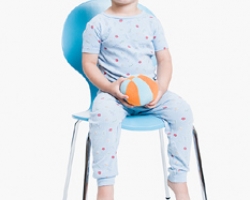Timeouts and so-called “naughty chairs” have become standard fare for parents who often feel at a loss for how to change the unacceptable behavior of their children – even with the youngest of children. The practice of using timeouts originated in an attempt to stop using physical punishment on children as a means of gaining cooperation. As a disciplinary tool, parents will send a misbehaving child to his/her room or some creatively named chair, with the intention of making the child sit and think about what the child has just done.
However, most young children will not easily go and sit quietly in a chair to ponder the choices they have made and come out with new-and-improved behavior. This can be seen time and again on the television show Super Nanny when the nanny or the desperate parents have to repeatedly and physically move the child to the naughty chair, until eventually the child has been broken like a misbehaving animal and sits, typically crying, until the adult says get up. Is this what we really want for our children – to break them like a dog?
Timeouts, in fact, can backfire altogether for parents and the actual enforcement of isolation can create an issue all its own. When children are isolated, they can feel shame, guilt, unloved, unappreciated and misunderstood. They can become discouraged and begin to act out in other ways. Many children decide to get even, harbor resentment, rebel or distrust adults altogether. The timeout has not built self-confidence, impulse control or better ways of coping or behaving.
Timeouts come from an authoritarian parenting style – the traditional power-over model of parenting, rather than an authoritative parenting style that is demanding and equally responsive to children. What is most effective when children are acting out is the love and support of adults who take time to teach and guide the child’s behavior with kindness, dignity and respect.
Children are constantly learning. It has often been said that they are like sponges. Therefore, when they are behaving in unacceptable ways they can be taught how to act in a way that is acceptable without being punished. People often ask how to encourage proper behavior if we don’t punish. Take time for training. Tell them what is expected. Tell them how to behave. Set them up for success prior to a situation. Recognize and acknowledge when children are behaving in appropriate and acceptable ways and when they are cooperating.
Very young children need constant supervision, redirection and training to understand their world – not punishment. It is important to understand that young children are developing their sense of autonomy and initiative. It is helpful for parents to get into the shoes of their child and look at the behavior from a place of curiosity and wonder. Parents can actually ask themselves, “What is my developing child’s need right now?”
There are times when parents become frustrated with their children – the fuse is short and everyone needs a break. Take the break but take it with your child, rather than forcing them into exile. Have five minutes of quiet time on the couch without saying a word. After everyone has calmed down, talk to your child about his/her behavior and take advantage of the teachable moment to teach rather than punish. Handling tough parenting situations in a positive, non-punitive manner will make parenting much more enjoyable and your children will be encouraged to behave in appropriate ways because it’s the right thing to do, not because someone bigger than them kept putting them in the naughty chair.
Marni Parsons is a PCI-Certified Parent Coach®, Certified Positive Discipline Parent and classroom educator & family consultant. To learn more, including her 45-minute complimentary strategy session, visit acoach4parents.com or call (310) 435-3622.

